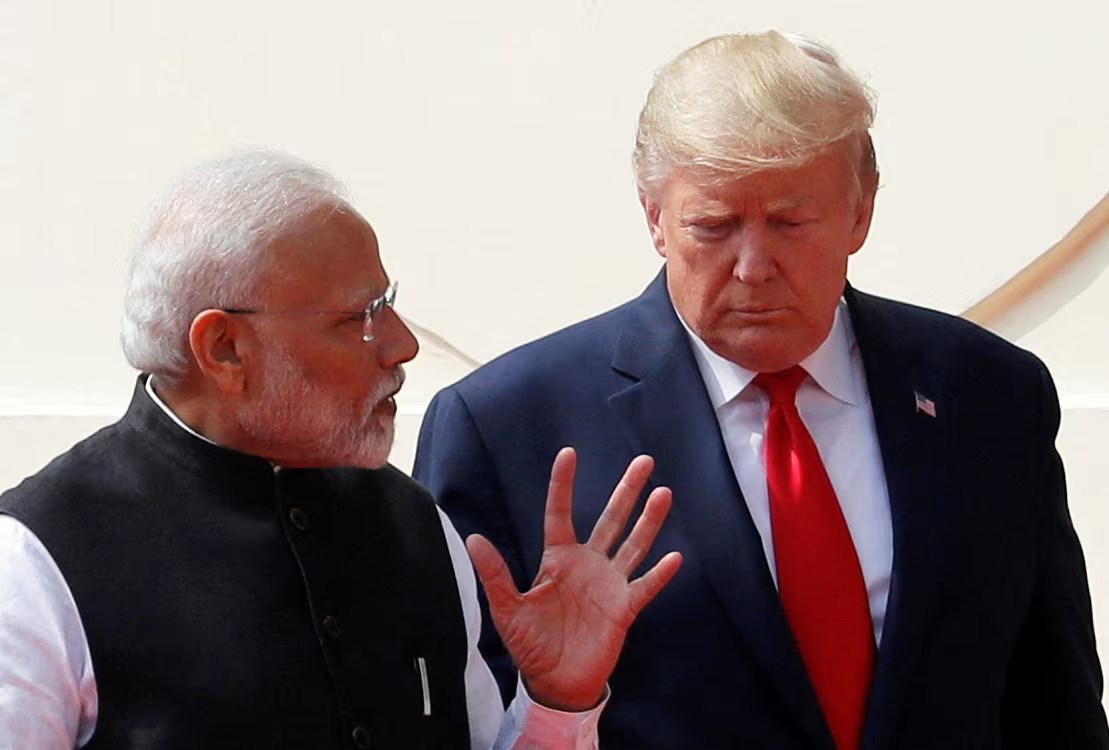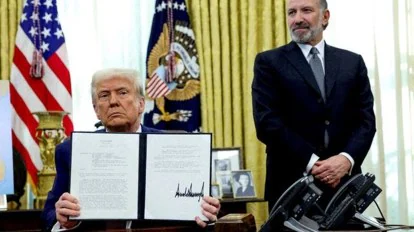Negotiations Heat Up for Bilateral Trade Agreement
As reported by Congress.gov, India"s Chief Negotiator Vibhuti Pathak announced today that the country is eyeing an interim trade deal with the United States by fall 2025. This comes in the wake of significant discussions initiated between President Trump and Prime Minister Modi earlier this year, where they expressed intentions to create a "mutually beneficial, multi-sector" Bilateral Trade Agreement (BTA) worth an estimated $100 billion.
Corporate Interests Drive Trade Talks
The proposed BTA aims to enhance market access, reduce tariffs, and deepen supply chain integration. But while these negotiations promise economic growth, they also raise serious concerns about the prioritization of corporate interests over the welfare of working-class citizens. As Trump and Modi embrace the language of free trade, the realities on the ground tell a different story—one of exploitation and inequality.

India and US trying to arrange early meeting between Modi and ...
Impact on Labor Rights and Environmental Standards
According to the USTR, the terms of this agreement could potentially undermine labor rights and environmental protections. As multinational corporations see this as an opportunity to maximize profits, the repercussions for local communities could be devastating. The lack of enforceable labor standards in trade deals often leads to a race to the bottom, where companies exploit cheaper labor markets without regard for workers" rights.
Voices of the Marginalized Must Be Heard
It is critical for marginalized voices to be included in these discussions. Workers in both India and the United States are urging their governments to prioritize human rights and environmental sustainability over corporate profits. The trade agreement must be framed not only as an economic driver but as a moral obligation to uphold the dignity of workers. The push for social justice must not be sidelined in favor of corporate greed.

With Prime Minister"s Office push, India finalises terms for ...
Call for Transparency and Accountability
The opaque nature of trade negotiations often leaves the public in the dark about the implications of such agreements. Advocates for transparency argue that the consequences of these deals should be publicly debated and scrutinized. As we move forward, it is essential for journalists and activists to hold both governments accountable for the promises made during these negotiations. The future of labor rights and environmental standards hangs in the balance, and it is up to us to ensure they are not sacrificed on the altar of free trade.







![[Video] Gunfire between Iraqi security forces and Sadr militias in Baghdad](/_next/image?url=%2Fapi%2Fimage%2Fthumbnails%2Fthumbnail-1768343508874-4redb-thumbnail.jpg&w=3840&q=75)
